 NEW YORK: It's official. China's slowdown is starting to hurt corporate America.
NEW YORK: It's official. China's slowdown is starting to hurt corporate America.
As the world's second-largest economy and still growing China is seen as a primary source of revenue growth by the largest US companies.
But a country that once boasted double-digit growth is now growing at a more modest 7.5 percent rate, its credit markets are overheated and fears of a housing bubble remain.
The slowing has occurred as major US names garner more revenue from Asia. Among 18 S&P companies with large exposure to China, 12 of them were underperforming the broader S&P 500 index year-to-date, including Yum Brands Inc and Intel, which noted the slower growth in China as a headwind.
"The China impact is becoming more and more significant because the (US) companies' exposure has grown so much over the years," said Robbert van Batenburg, director of market strategy at Newedge in New York.
Those concerns have caused investors to reduce their global emerging-markets equity exposure to its lowest in 12 years, according to a Merrill Lynch survey.
Industrials, luxury goods makers and companies in the commodities and consumer businesses have built up huge exposure to China.
On Wednesday, hedge fund guru Jim Chanos said he was shorting Caterpillar, sending shares down nearly 2 percent. Chanos has long argued that China's economy is headed for a crash, saying the company is "tied to the wrong products at the wrong part of the cycle."
About 25 percent of Caterpillar's revenue comes from the Asia/Pacific region, though it does not break out revenues by country.
GLOOMY OUTLOOK
A Merrill Lynch fund manager survey from June pegs China's problems as the most worrisome factor.
The survey said the prospect of a hard landing in China stands out as a major tail risk identified by fund managers, with 56 percent ranking it first on this measure, compared with just one-third of respondents giving it that ranking a month ago.
"China has gone from a very difficult transition as they try to spur internal consumption. That has produced inflation and a big credit crunch," said Omar Aguilar, chief investment officer for equities at Charles Schwab Corp in San Francisco.
"I think a lot of people underestimated the effect of China and Brazil. (Going forward) they will probably be very conservative on their estimates. They're going to scale down," Aguilar said.
Yum Brands, the operator of the KFC and Taco Bell chains, reported a 15 percent drop in quarterly earnings last week as KFC sales in China, a crucial market for Yum, have been falling since December. Nearly 51 percent of Yum's revenue is from China, up from just 34 percent two years ago.
Intel, which has about 16 percent of its revenue from China, also cut its full-year revenue forecast and said it is scaling back capital spending as it adjusts to a painful contraction of personal computer sales and economic weakness in China.
Chipmaker Advanced Micro Devices derives 58 percent of its revenue from China, up from 45 percent in 2010. The company's quarterly loss was 9 cents a share, ahead of the forecast for a 12-cent loss. It did not mention China in its press release.
Analysts content that without the People's Bank of China injecting liquidity into its financial system, growth will keep declining. Societe Generale now projects GDP growth in the world's second-largest economy at as low as four to five percent by the end of this decade.
TARGET THE MIDDLE CLASS
Some analysts say companies can withstand China's slowdown by shifting their focus to programs funded by the central government, which are designed to lift the middle class segment of the population to 45 percent or more later this decade from about 40 to 41 percent currently.
If the companies target the middle class, they can enjoy steady growth in their sales in China, but if they continue to focus on export-oriented projects funded by cash-strapped local governments, they will be disappointed, according to Nicholas Heymann, analyst at William Blair & Co in New York.
He noted that United Technologies' Otis elevator unit has been successfully growing in China as demand for elevators outpaces supply in the country.
Beverage companies also are counting on a growing middle class to boost sales. Coca Cola CEO Muhtar Kent said earlier this week that China is a great consumer market with a very robust new middleReuters
"We're very bullish on the long-term prospects in China," Kent told reporters.
Still, the slowdown in China comes at an especially bad time for US industrials, given persistent weakness in the Eurozone and the lackluster recovery in the US
"China affects all of the industrials, some more than others. Machinery names tend to be more economically sensitive, more volatile, more leveraged," said Brian Langenberg, founder of research firm Langenberg & Co in Chicago.
"Caterpillar would say inventories are coming back into line. But your outlook on a stock depends on what implicit growth rate you are expecting from China," he said.
Caterpillar's revised outlook for 2013, which it may update next week when it reports earnings, reflects an expected 50 percent decline in sales of its traditional mining trucks and loaders as well as a 15 percent decline in sales of draglines made by Bucyrus, the Milwaukee-based company it bought in 2010.
"Some of the companies that have been hit, a lot of it was in infrastructure, the Caterpillars of the world, Joy Global and some others. Is there likely to be some spillover? There could be. This probably will be the quarter where it will rear its head," said Perry Adams, vice president at Northwestern Bank in Traverse City, Michigan.


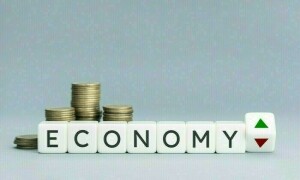












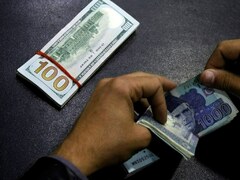
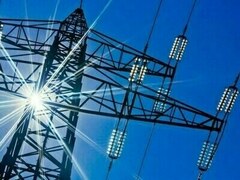
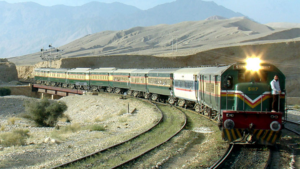


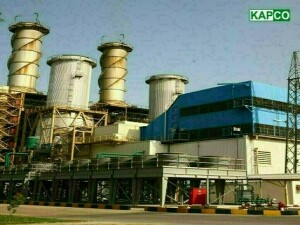

Comments
Comments are closed.